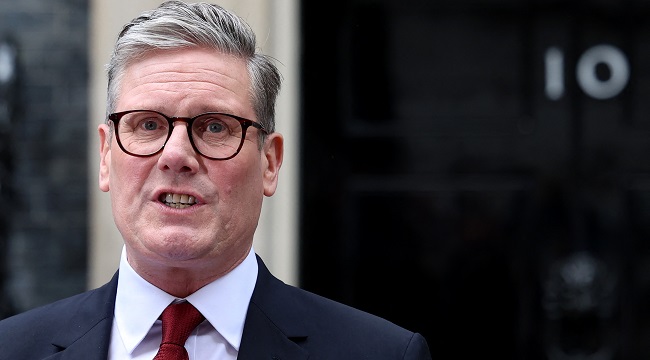
UK Prime Minister Keir Starmer will embark on his first foreign trip since taking office, attending NATO’s 75th anniversary summit in Washington on Tuesday, July 9, 2024.
This visit marks the beginning of Starmer’s international diplomacy efforts following his landslide election victory last Friday.
Starmer, 61, emphasized the significance of the summit in a meeting with his top team, stating it offers an opportunity to “reset relationships, reinvigorate our unshakeable commitment to the alliance, and demonstrate the strength of Britain on the world stage.”
The NATO summit will be the first of several diplomatic engagements for Starmer in the coming weeks. The UK is also set to host a European leaders’ conference next week. According to foreign policy expert James Strong, the summit will allow Starmer to “learn and get to know other leaders as much as to communicate any particular messages.”
Britain has been one of Ukraine’s staunchest allies, providing financial aid, weapons, and troop training to help it repel Russia’s invasion. Starmer has pledged to maintain this support, a commitment he is expected to reaffirm in person to Ukrainian President Volodymyr Zelensky at the NATO meeting.
Defence Secretary John Healey has already visited Ukraine since the election, while Foreign Secretary David Lammy has been visiting European NATO members. Labour aims to match the Conservatives’ promise to raise defence spending to 2.5 percent of GDP, above the NATO target of two percent.
Strong noted that “we can expect lots of talk about ‘business as usual’,” highlighting Starmer’s intention to stress continuity on major foreign policy issues while also signaling a reset in relations with European allies that were strained by Brexit. Labour has pledged closer cooperation with European neighbours, including bilateral deals with France and Germany and agreements with the EU bloc.
Starmer’s trip will also provide an early opportunity to build rapport with US President Joe Biden and cement the UK-US special relationship. Despite potential differences, such as Labour’s more pro-Palestinian stance on the Israel-Hamas war compared to Washington, the visit aims to demonstrate the resilience of the UK-US alliance.
Starmer will subsequently host the European Political Community summit at Blenheim Palace, near Oxford, on July 18, with key European leaders, including France’s President Emmanuel Macron and Germany’s Chancellor Olaf Scholz, expected to attend. This summit will allow Labour to push for an “ambitious” security pact with the European Union and explore the shape of a post-Brexit trading deal.
Olivia O’Sullivan, director of the UK in the World Programme at Chatham House, commented that the two summits “provide an opportunity to put more meat on the bones of this proposal,” as Starmer steps onto the global stage.








